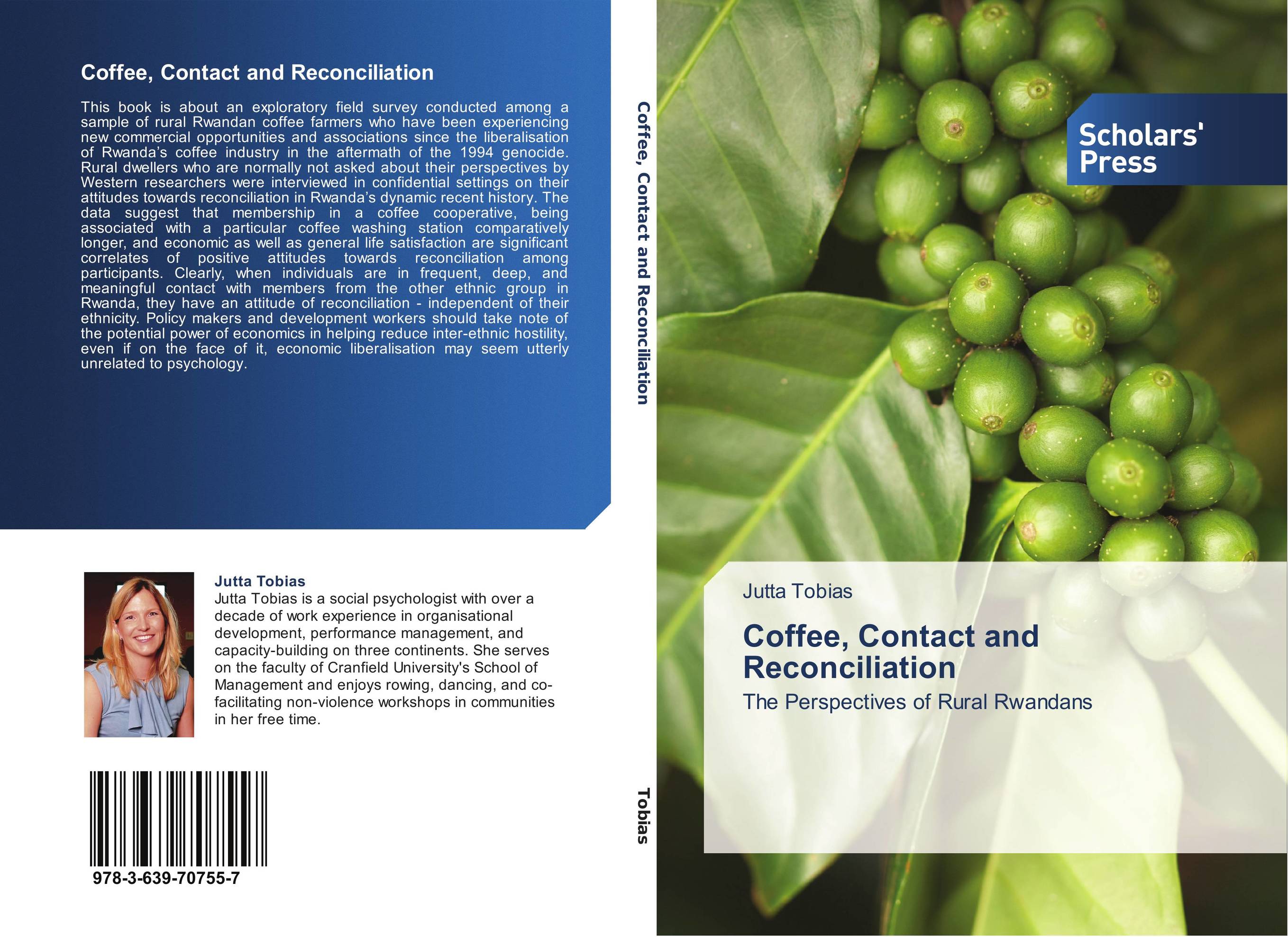| Поиск по каталогу |
|
(строгое соответствие)
|
- Профессиональная
- Научно-популярная
- Художественная
- Публицистика
- Детская
- Искусство
- Хобби, семья, дом
- Спорт
- Путеводители
- Блокноты, тетради, открытки
Coffee, Contact and Reconciliation. The Perspectives of Rural Rwandans

В наличии
| Местонахождение: Алматы | Состояние экземпляра: новый |

Бумажная
версия
версия
Автор: Jutta Tobias
ISBN: 9783639707557
Год издания: 2014
Формат книги: 60×90/16 (145×215 мм)
Количество страниц: 100
Издательство: Scholars' Press
Цена: 34309 тг
Положить в корзину
| Способы доставки в город Алматы * комплектация (срок до отгрузки) не более 2 рабочих дней |
| Самовывоз из города Алматы (пункты самовывоза партнёра CDEK) |
| Курьерская доставка CDEK из города Москва |
| Доставка Почтой России из города Москва |
Аннотация: This book is about an exploratory field survey conducted among a sample of rural Rwandan coffee farmers who have been experiencing new commercial opportunities and associations since the liberalisation of Rwanda’s coffee industry in the aftermath of the 1994 genocide. Rural dwellers who are normally not asked about their perspectives by Western researchers were interviewed in confidential settings on their attitudes towards reconciliation in Rwanda’s dynamic recent history. The data suggest that membership in a coffee cooperative, being associated with a particular coffee washing station comparatively longer, and economic as well as general life satisfaction are significant correlates of positive attitudes towards reconciliation among participants. Clearly, when individuals are in frequent, deep, and meaningful contact with members from the other ethnic group in Rwanda, they have an attitude of reconciliation - independent of their ethnicity. Policy makers and development workers should take note of the potential power of economics in helping reduce inter-ethnic hostility, even if on the face of it, economic liberalisation may seem utterly unrelated to psychology.
Ключевые слова: conflict, liberalisation, Intergroup contact, Rwanda, Coffee industry, Reconciliation



